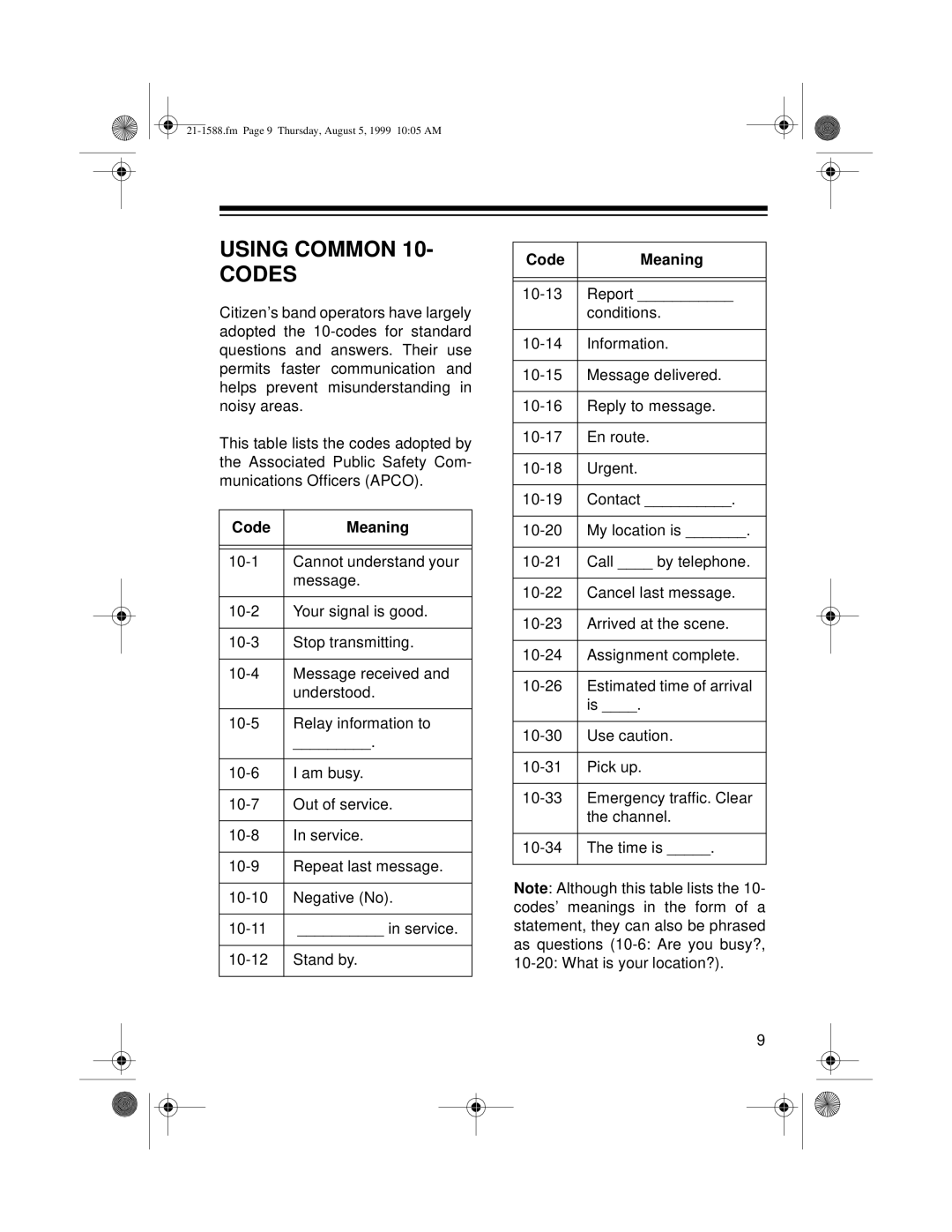
USING COMMON 10-
CODES
Citizen’s band operators have largely adopted the
This table lists the codes adopted by the Associated Public Safety Com- munications Officers (APCO).
Code | Meaning |
|
|
|
|
Cannot understand your | |
| message. |
|
|
Your signal is good. | |
|
|
Stop transmitting. | |
|
|
Message received and | |
| understood. |
|
|
Relay information to | |
| _________. |
|
|
I am busy. | |
|
|
Out of service. | |
|
|
In service. | |
|
|
Repeat last message. | |
|
|
Negative (No). | |
|
|
__________ in service. | |
|
|
Stand by. | |
|
|
Code | Meaning |
|
|
|
|
Report ___________ | |
| conditions. |
|
|
Information. | |
|
|
Message delivered. | |
|
|
Reply to message. | |
|
|
En route. | |
|
|
Urgent. | |
|
|
Contact __________. | |
|
|
My location is _______. | |
|
|
Call ____ by telephone. | |
|
|
Cancel last message. | |
|
|
Arrived at the scene. | |
|
|
Assignment complete. | |
|
|
Estimated time of arrival | |
| is ____. |
|
|
Use caution. | |
|
|
Pick up. | |
|
|
Emergency traffic. Clear | |
| the channel. |
|
|
The time is _____. | |
|
|
Note: Although this table lists the 10- codes’ meanings in the form of a statement, they can also be phrased as questions
9
